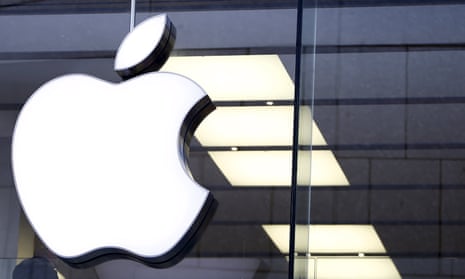The FBI has been roundly criticized for using a law from 1789, the All Writs Act, to gain access to the data stored on one of the phones of the San Bernardino shooters. But critics ignore what the move indicates: that there has been little or no productive dialogue between the government and Apple in terms of cooperation.
Use of the law might be the last option left to force the software giant to rethink its strict position on allowing law enforcement to gain access to their encrypted devices. Many mobile forensics examiners, including myself, know that what is at stake is not just the San Bernardino case but a growing backlog of criminal cases – some involving suspected child abusers or terrorists – that cannot proceed because of Apple’s defiance in assisting law enforcement.
Mobile forensics examiners also know that iPhones, and other smartphones which enable full disk encryption, have become the communication device of choice for Isis members because of this derisory public debate. The current potential solutions to extract data from encrypted devices, like attacking encryption under an electron microscope, will cost taxpayers millions of dollars compared to a more simple solution, which Apple could provide if it wanted.
In this case, law enforcement agencies are simply asking Apple to revert back to its previous model of encryption management or make simple, low-cost modifications. Apple used to possess more control over their devices and could facilitate an investigation when a request was made using both a warrant and a court order. This was the model used by Apple up until recently, when it eliminated its own ability to access a user’s iPhone.
In the San Bernardino case, Apple may be able to develop custom firmware for this iPhone 5C, which is signed by Apple, to allow law enforcement to perform a brute force attack without wiping the device and to avoid the built-in iOS time delay security feature. The problem for Apple is the precedent that this may set with the judicial system and Apple may end up inundated with tens of thousands of backlogged iPhones from law enforcement agencies everywhere. The FBI may have outlined a potential solution for Apple to comply with, which may be difficult for Apple to argue against.
Tim Cook’s argument about this being a fight for the protection of encryption is perplexing. If we are to agree with Cook’s assertions, does this mean that Apple iPhone’s possessed poor encryption and security up until two years ago? Hardly.
It is important to understand the marked distinction between surveillance and law enforcement. The Snowden revelations have caused consternation and suspicion of cooperation between the government and private industry. Cook’s letter seems to cause confusion in the section noted as “A Dangerous Precedent”.
The request being made by James Comey, director of the FBI, is for law enforcement officials to conduct their investigation with the assistance of Apple, when in possession of a court-approved warrant. Technology companies facilitating law enforcement investigations is certainly not a novel concept. For example, the Communications Assistance Law Enforcement Act stipulates that telecommunications companies must design their network infrastructure to facilitate court-approved Title III Wiretaps.
Still, Cook’s letter pushes back strongly against the FBI request, stressing the importance of “legislative action through Congress”. Congressional legislation is urgently needed. However, this debate continues to rage on after a year with no productive discussion or outcome and a near-term solution seems impossible in an election year.
Unfortunately, it may take another terrorist attack for the public to understand the importance of gaining access to today’s encrypted smartphones, when the public demands answers. Effective and meaningful cooperation is urgently needed to prosecute some of the most heinous criminals and the issue at hand is certainly a matter of national security.
